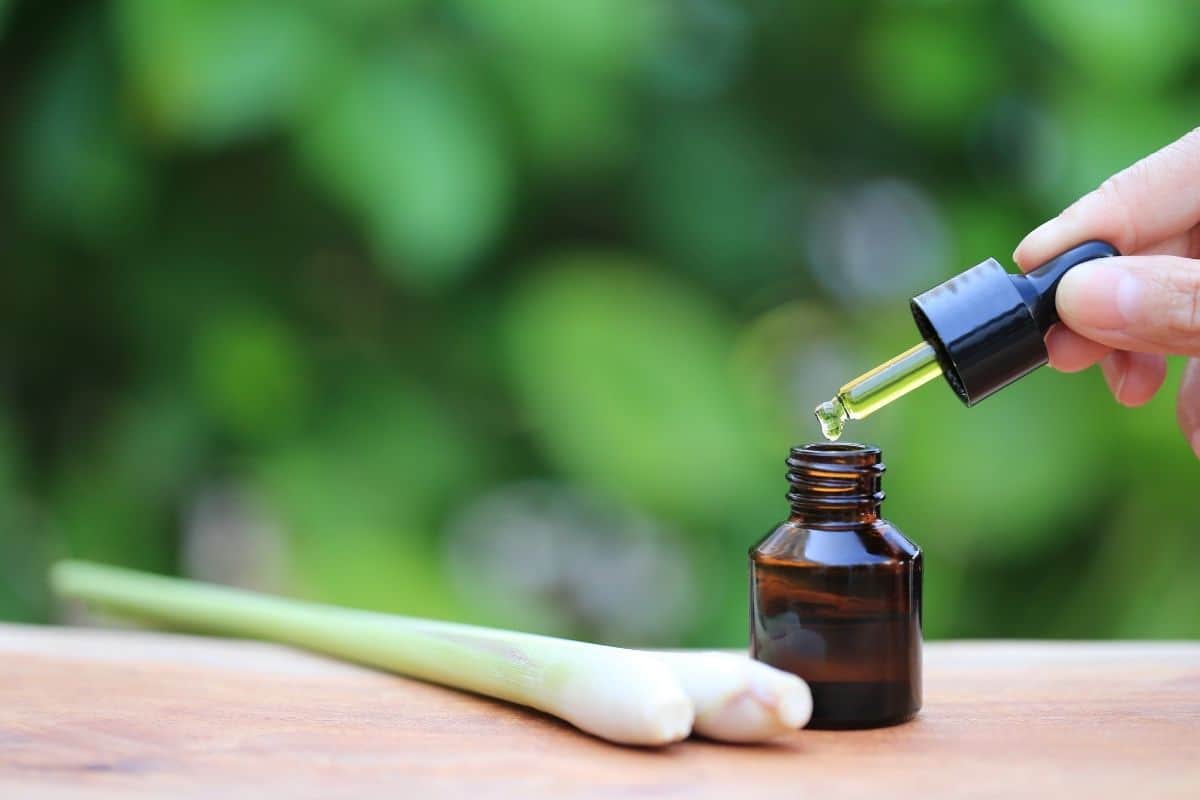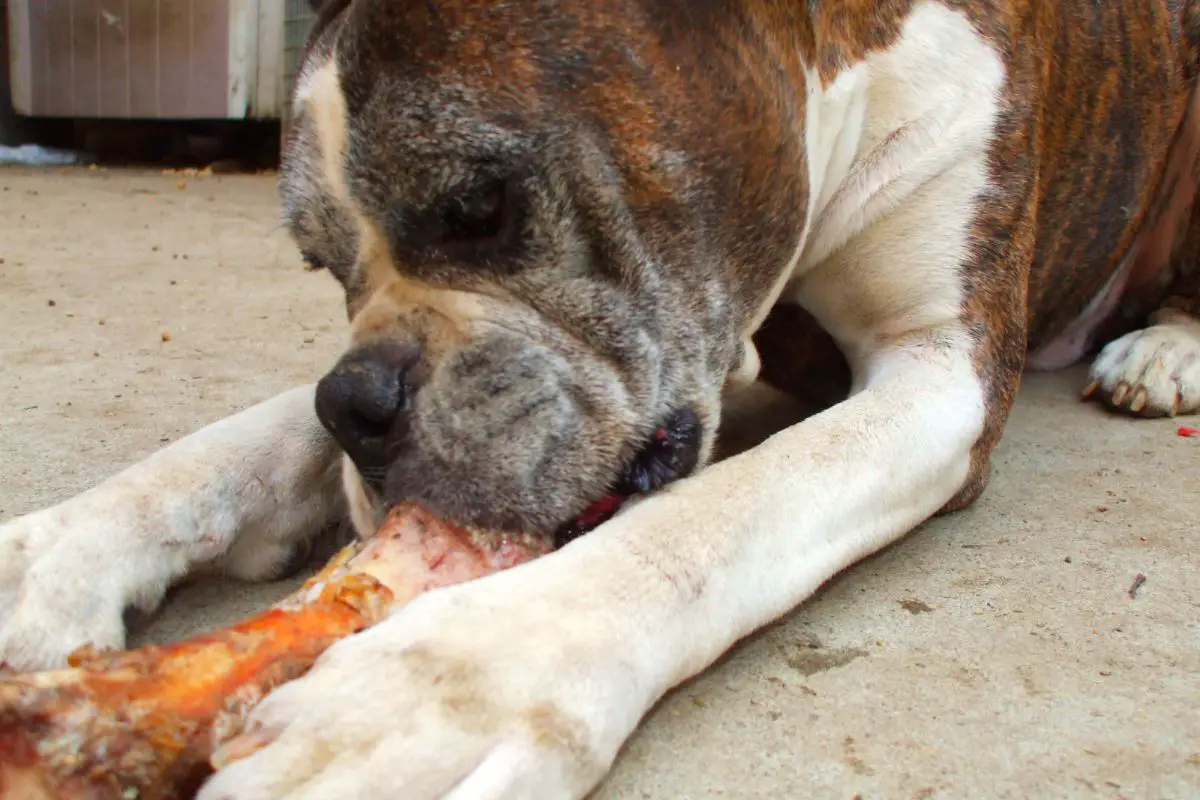Lemongrass, scientifically known as Cymbopogon, is a popular grass herb among humans. This member of the grass family is known for its numerous health benefits ranging from boosting the red blood cell level to lowering blood cholesterol to relieving pain. But if it’s beneficial to humans, is it really safe for consumption by dogs?
Dogs can eat lemongrass but only in small amounts. If they ingest lemongrass in large quantities, this herb can cause gastrointestinal blockage issues. Signs of lemongrass poisoning include abdominal discomfort, vomiting, diarrhea, an enlarged abdomen, and struggling to defecate.
If you’ve been wondering whether your canine companion can eat this human’s favorite herb, you’re in the right place. Here, I’ll discuss in detail everything you need to know regarding dogs and lemongrass. So, let’s get started!
Is Lemongrass Safe for Your Dog?
Lemongrass is safe for your dogs in small quantities and won’t cause any severe harm. However, you should be cautious and not allow them to consume a high amount because their digestive system isn’t designed to digest herbs and any other plant matter since canines aren’t herbivores.
Dogs are known to munch on almost anything that comes their way. And while lemongrass is one of those herbs that your pup is likely to nibble on, a high intake of it can cause gastrointestinal issues and intestinal blockage due to incomplete digestion.
Therefore, while it’s safe to have lemongrass in your kitchen garden or your kitchen, you shouldn’t allow your dog to nibble on it anytime they feel like it.
Signs of Lemongrass Poisoning
We’ve said that a large intake of lemongrass can cause gastrointestinal issues in your dog. And as a cautious dog parent, you should watch out for the following symptoms if you suspect your furry friend has ingested a higher quantity of lemongrass than they can handle:
- Abdominal discomfort: Obstructed gastrointestinal tract can make your pup appear disturbed or uncomfortable. They may even appear to walk in a hunched position.
- Vomiting: Vomiting is triggered by the obstruction caused by the fibrous part of the lemongrass that irritates their digestive system.
- Diarrhea: An upset stomach from the obstruction can cause diarrhea.
- Enlarged abdomen: An obstruction from a large lump of lemongrass can make the abdomen appear enlarged.
- Struggling to defecate: The blockage in the digestive tract can result in straining during defecation.
- Other general symptoms to watch out for include fever, loss of appetite, and shock.
These symptoms are mainly noticeable within 24 hours following the ingestion of large quantities of this member of the grass family.
Generally, gastrointestinal blockage is often the main issue with lemongrass consumption and comes from improper digestion of the plant matter.
The other symptoms of lemongrass poisoning may be directly linked to the blockage, or it could be that the lemongrass had been treated with pesticides prior to the ingestion.
Additionally, it can be a case of misidentification, where your dog takes another toxic grass, thinking it’s lemongrass.
Either way, these symptoms are a cause for alarm.
What To Do if Your Dog Eats Lemongrass
If you identify the above systems in your pooch, you should immediately rush to a pet clinic or consult a veterinarian.
And depending on the severity of the symptoms, the vet may conduct a physical exam of your pup, run some blood tests, or do some X-rays to come up with a sound treatment plan.
Lemongrass Poisoning Treatment Plan
Depending on the vet’s findings, they may recommend any of these treatment plans:
- Use of intravenous (IV) fluids to flush out the clumped mass of lemongrass.
- If the examinations detect another toxin in your dog’s body, the vet may recommend induced vomiting to flush out the toxins.
- In extreme cases, surgery is used as a last resort to remove the blockage.
After the treatment phase, the vet may recommend some tips to give your pup a smooth recovery. These include:
- A bland diet to keep your pup’s stomach settled during recovery.
- Painkillers to ease the pain, especially after surgery.
If your pup is fond of nibbling on lemongrass, your vet may advise you to lock them out of your garden or keep this grass herb out of their reach.
Can Lemongrass Kill My Dog?
Lemongrass can’t kill your dog outright, but excessive consumption can lead to intestinal blockage, among other severe side effects. Since pups’ digestive system isn’t designed to digest plant matter, the fibrous part of the lemongrass clumps together, forming a gastrointestinal blockage.
If no medical attention is provided, the blockage can have detrimental effects on your pup’s health and even cause death in extreme cases.
Why Is My Dog Fond of Eating Lemongrass?
Your dog is fond of eating lemongrass because canines generally eat grass when they have a tummy upset or an underlying gastrointestinal problem, according to David Elbeze, DVM, MRCVS, an experienced veterinarian.
Additionally, other dogs find pleasure in eating lemongrass may be due to its lemony flavor. Others still do it to make up for nutritional deficiencies.
So if your pooch is fond of eating lemongrass, it may be due to any of these reasons.
Is Lemongrass Oil Good for Dogs?
Lemongrass oil, a derivative of the lemongrass plant, isn’t good for dogs because they contain a higher concentration of essential oils and cyanogenic glycosides Essential oils in lemongrass oil contain traces of esters, alcohol, ketones, and phenols, which aren’t good for canines.
These chemicals readily get into your pup’s system, where the liver metabolizes them. A higher quantity of these chemicals can cause detrimental effects on pups with liver disease or puppies and senior dogs.
Some common symptoms of essential oil poisoning in pups include panting, difficulty breathing, watery eyes, drolling, reduced body temperature, and coughing.
On the other hand, cyanogenic glycosides are toxins produced by plants to defend themselves against pathogens and herbivores that damage their tissues. This toxin is present in higher concentrations in plant oils.
These toxins are hydrolyzed into cyanide upon consumption by dogs, an acute intoxication that blocks electrons transfer and cellular respiration.
This intoxication results in low blood oxygen levels, which is a condition that triggers convulsion and even death in extreme cases.
Lemon oil also comes with a high concentration of citral that can burn your dog’s sensitive skin. So if your dog has skin issues or parasites and you want to use lemongrass oil as a remedy, dilute the oil with jojoba oil or coconut oils. Alternatively, it’s important to consult your vet for your pup’s safety before using lemongrass oil on your favorite furry friend.
So, in a nutshell, lemongrass oil, in any way, isn’t safe for consumption by canines.
Does Lemongrass Cause Intestinal Blockage?
Too much lemongrass can cause intestinal blockage like any other plant matter. Typically, a dog’s digestive system isn’t designed to digest them. Therefore, high ingestion of lemongrass will cause improper digestion, leading to clumping up the fibrous matter, causing a gastrointestinal blockage.
What Should I Do if My Dog Gets an Upset Stomach After Eating Lemongrass?
If your dog gets an upset stomach after eating lemongrass, get them checked out by a vet to confirm that there isn’t any gastrointestinal blockage. If that’s the case, supportive care is all that’s needed to help your pup recover.
Supportive care may be done in the hospital or at home, depending on the severity of the symptoms. It includes the use of anti-diarrhea medications, IV fluids, and anti-nausea meds to help him recover.
Fluids may also be administered through your pup’s skin to enhance their absorption and counter dehydration from excessive vomiting and diarrhea.
How Do I Tell if My Dog Has Lemongrass Poisoning?
You can tell if your dog has lemongrass poisoning by some of the common noticeable symptoms that they may exhibit, including constipation, diarrhea, vomiting, loss of appetite, and a painful tummy whereby your dog starts walking in a hunched position.
If you notice any of these symptoms, consult a vet immediately before things go out of hand!
Can I Grow Lemongrass in My Backyard if I Have a Dog?
Lemongrass is a tasty type of grass that dogs can’t resist. Therefore, if it’s grown within their reach, you’ll always find them nibbling it. And while a little of it can’t cause any severe harm to your dog, you shouldn’t turn it into a habit.
You can’t grow lemongrass in your backyard if you have a dog that’s a chronic grass eater. However, you may consider growing lemongrass in an area where your pup can’t get to and easily access.
Because if you give your canine companion the free will to feed on lemongrass anytime they feel like it, they may end up consuming more than they can handle. And the ultimate result of this excessive consumption can be severe stomach upset and an intestinal blockage.
So, before growing this healthy grass in your homestead, think first of the effects it can have on your pooch.
Conclusion
To wrap up the discussion on whether dogs can eat lemongrass, we can say that a few bites are not harmful, but more of it is poisonous. Therefore, as much as this type of grass carries multiple health benefits for humans and pets, it isn’t the best herb for dogs.
It’s advisable to try as much as possible to limit your pup’s intake of lemongrass. I hope you’ve gained helpful information concerning your dog’s intake of lemongrass.
Related Articles
- Can Dogs Eat Mayo? (We Find Out)
- Can Dogs Eat Raspberries? Let’s Find Out!
- Can Dogs Eat Frozen Yogurt? Read This First!
- Can Dogs Eat Ginger Snaps: Yay or Nay?
- Tapioca for Dogs: Should It Be Part of Your Dog’s Diet?
- Can Dogs Eat Banana Bread? We Ask the Experts!
- Can Dogs Eat Pork Rib Bones? (Is It Safe?)
- Can Dogs Eat Tuna? (We Find Out)
- Is Smoked Meat Like Brisket Bad for Dogs? (We Ask the Experts)
- Can Dogs Eat Raw Pork? (We Ask the Experts)
- Can Dogs Eat Caramel? (We Ask the Experts)
Sources
- MedicalNewsToday: What are the health benefits of lemongrass tea?
- PetCoach: My dog keeps eating the lemongrass. Is that normal? What does it mean?
- Our Fit Pets: My Dog Ate Lemongrass Will He Get Sick?
- Healthy Homemade Dog Treats: Is Lemongrass Oil Safe For Dogs?
- My Ollie: Is Lemongrass Safe For Dogs?
- Pet Care Advisors: Is Lemongrass Plant and Lemongrass Oil Safe for Dogs





